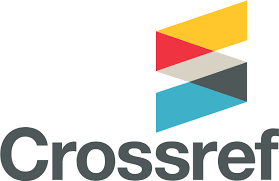Statement of publication ethics
When publishing in the journal Per Aspera ad Astra. Publications on the Cultural and University History of the University of Pécs, all parties involved (the author, the editors, the peer reviewer and the publisher) agree with this statement of expected ethical conduct, which is based on the COPE (Committee of Publication Ethics) Core Practices.
Decisions on Publication
The editors in charge of the current issue decide which manuscripts submitted for publication will be published in the journal and when. The editors are guided by the guidelines set by the journal's editorial board and are constrained by current laws on defamation, copyright infringement and plagiarism. The editors may be assisted in their decisions by the members of the editorial board and the advisory board, and by editors of their choice, in making their decisions. The editors in charge may use plagiarism detection software.
Equal Opportunities
The editors will at all times evaluate the intellectual content of manuscripts without regard to the gender, sexual orientation, religious beliefs, ethnic origin, nationality or political views of the authors.
Confidentiality
All manuscripts submitted for review are considered confidential by the editorial office. The editorial staff will not disclose any information about the manuscript submitted for publication. Exceptions to this rule are the author, the reviewers, potential reviewers, other editorial consultants and the publisher.
Publication and conflicts of interest
The editors will not use unpublished material from the submitted manuscript for their own research without the written consent of the author. The Editor-in-Chief shall ensure a balanced treatment of manuscripts submitted by members of the editorial board.
The Peer Review Process
Manuscripts submitted to the Studies section are peer-reviewed in a double-blind process with the assistance of an external reviewer with a PhD degree. Papers submitted to the Workshop and Review sections are peer-reviewed by members of the editorial board. If the peer reviewer does not recommend the manuscript for publication, the editor in charge may refuse to publish the paper or may request an additional reviewer. The editor will ensure that authors have access to the full opinion of the reviewers, provided that it does not contain any offensive statements. The editor in charge of the current issue makes the final decision about the publishing of the manuscript.
The editor should not reverse decisions to accept submissions unless serious problems are identified with the submission. In this case, the editor will inform the author(s) in detail.
The journal acknowledges the work of reviewers by publishing their names in the current issue of the journal.
General Duties of Peer Reviewers
The reviewer assists the author in improving the scientific quality of the article and assists the editor in charge of making decisions. If the selected reviewer considers that he/she is not professionally qualified to evaluate the research presented in the manuscript or knows that he/she will not be able to provide an effective review within the time limit, he/she is obliged to inform the editor in charge and to withdraw from the review process. In addition, the reviewer may not evaluate a manuscript if he/she has any conflict of interest arising from a competitive, collaborative or other relationship with authors, companies or institutions associated with the manuscript. The reviewer should make an objective assessment, express his/her opinion clearly and support it with arguments. At the same time, the reviewer should alert the editor to any significant similarities or overlaps between the manuscript under review and other previously published material of which he/she is aware. The reviewer will keep confidential any privileged information or ideas obtained during the review process and will not use them for personal gain.
General Duties of Authors
By submitting a manuscript, the author declares that:
The writing is based on original research, interpretations and conclusions are based solely on facts or unbiased and logical evidence. False or knowingly inaccurate statements are considered unethical and unacceptable behaviour.
The work is the author's own original intellectual creation, and where the author has used the work and/or expressions of others, the author has cited and referenced them appropriately. The author has acted in accordance with copyright criteria in the case of images attached to the text for publication.
The author has not published the article elsewhere online or offline and has not submitted it to another journal at the same time. Reproduced manuscripts prepared for a conference presentation or, in the case of a publication in Hungarian, articles previously published in a foreign language are not considered to be pre-publications.
The author has included all persons who have made a substantial contribution to the conception, design, organisation or interpretation of the submitted work and has not identified any unauthorised co-authors. All persons who have made a substantial contribution to the study should be listed as co-authors. However, all those who have participated in certain essential stages of the research project should be mentioned as contributors. In the case of multiple authorship, the contact author should also guarantee that all co-authors have seen and approved the final version of the study and have agreed to its publication.
The author has disclosed in the manuscript all sources of financial support for the research and any financial or other material conflicts of interest that might affect the outcome of the research.
If the author discovers a significant error or inaccuracy in a previously published paper, they should immediately notify the Editor-in-Chief of the journal and cooperate in withdrawing or correcting the paper.
Authors have the right to appeal the decisions of the Editorial Board. Appeals should be sent in writing directly to the Editor-in-Chief (paaa.szerk@gmail.com). The Editor-in-Chief will review the case with the members of the editorial board and make a final decision based on the rules established by the journal. Authors will receive a written response to their appeal.










